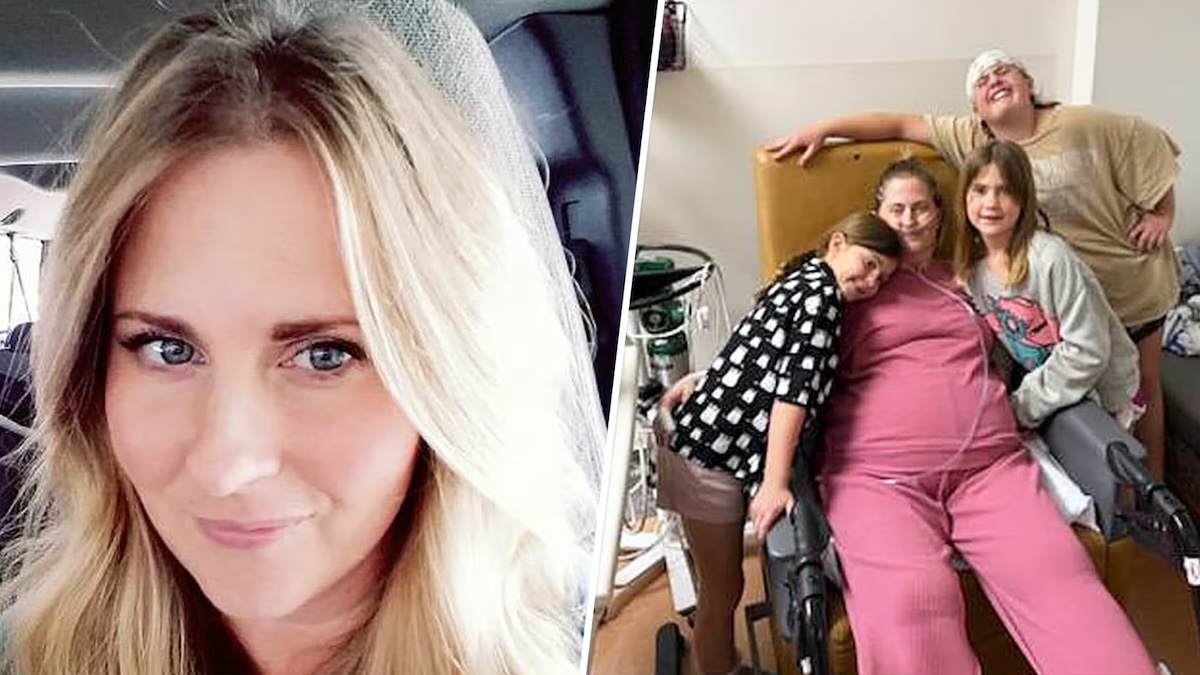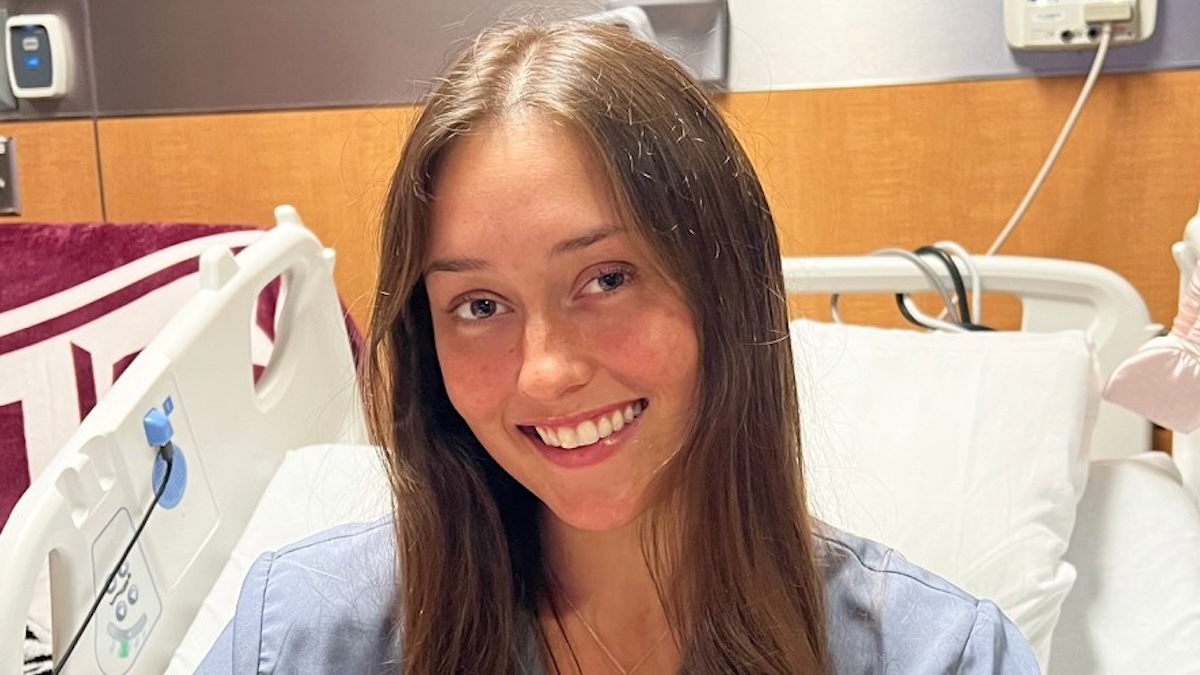Rare Cancer Tragedy: Mom of 10 Dies, Raising Awareness
A Mother's Unthinkable Loss: Mom of 10 Dies from Rare Cancer
Introduction: A Life Cut Short
Life can change in an instant. One moment you're juggling school drop-offs and bedtime stories, and the next, you're facing an unimaginable diagnosis. That's the heartbreaking reality that Angela Goodrich, a devoted mother of ten, faced when she was diagnosed with adrenocortical carcinoma. Just weeks after receiving the news, and after only one round of chemotherapy, Angela passed away at the young age of 45. Her story, though tragic, serves as a stark reminder of the importance of awareness and early detection, especially when dealing with rare diseases.
Understanding Adrenocortical Carcinoma (ACC)
What is Adrenocortical Carcinoma?
Adrenocortical carcinoma, or ACC, is a rare cancer that begins in the adrenal glands. These small glands, located on top of each kidney, are responsible for producing essential hormones that regulate everything from metabolism and immune function to blood pressure and response to stress. When cancerous tumors develop in these glands, it can disrupt hormone production and lead to a range of health problems.
How Rare is Rare? The 1 in a Million Statistic
The National Cancer Institute estimates that only one in a million people in the United States are diagnosed with ACC each year. Think about that for a second. It's like finding a specific grain of sand on a massive beach! This rarity makes it challenging to research and diagnose effectively. Rare diseases often get less attention and funding, which can significantly impact treatment options and outcomes.
Early Symptoms: A Feeling of Fullness
In Angela’s case, her journey began with a sensation of fullness in her abdomen. Now, many things can cause a feeling of fullness, right? Indigestion, bloating, or even just eating a large meal. This is why early detection is so tricky. Because the symptoms can be vague and easily attributed to other common ailments, ACC often goes undiagnosed until it has progressed. Any persistent and unexplained symptoms should always be checked by a medical professional.
Angela's Story: A Fight for Awareness
A Mother's Strength in the Face of Adversity
Despite the devastating diagnosis and the exhaustion from her first chemotherapy cycle, Angela found the strength to share her story with TODAY.com. This act of courage highlights her dedication to helping others and raising awareness about ACC. She understood that sharing her experience could potentially save lives by encouraging people to be vigilant about their health and to seek medical attention for unusual symptoms.
"We're Going to Get it Figured Out": A Spirit of Hope
Angela’s positive attitude, even in the face of such a daunting challenge, is truly inspiring. Her quote, "It was definitely a huge shock … (but) we’re going to get it figured out," reflects a resilient spirit and a determination to fight for her health and her family. This unwavering optimism can be a powerful tool in battling any illness.
The Power of Sharing: Binding People Together
Angela believed in the power of shared experiences. She said, “I think sharing in a journey binds people together and gives the information out to help other people as well.” And she was absolutely right. When we share our stories, we create a community of support, provide valuable information, and inspire hope. Her willingness to be vulnerable and open about her experience is a testament to her selfless nature.
The Impact of Rare Cancer Diagnoses
The Emotional Toll on Families
A cancer diagnosis is always devastating, but a rare cancer diagnosis can bring unique challenges. Imagine not only dealing with the fear and uncertainty of cancer but also struggling to find information, specialists, and support groups. The emotional toll on families can be immense, as they navigate complex medical jargon, treatment options, and the constant worry about the future.
The Challenges of Research and Treatment
Because ACC is so rare, research into its causes, prevention, and treatment is often limited. Pharmaceutical companies may be less inclined to invest in developing drugs for small patient populations. This lack of funding and research can make it difficult to find effective treatments and improve outcomes for patients with ACC.
The Importance of Early Detection
As with any cancer, early detection is crucial for improving the chances of successful treatment. However, the rarity of ACC and the vagueness of its early symptoms can make early diagnosis a significant challenge. It’s imperative that people are aware of the potential symptoms and that medical professionals consider ACC as a possibility when evaluating patients with unexplained abdominal symptoms or hormonal imbalances.
Understanding the Adrenal Glands and Their Function
What Do Adrenal Glands Do?
The adrenal glands are small but mighty! They are responsible for producing a variety of hormones, including cortisol, aldosterone, and adrenaline. These hormones play a crucial role in regulating various bodily functions, such as:
- Metabolism: Helping the body break down food and convert it into energy.
- Immune Function: Regulating the immune system's response to infection and inflammation.
- Blood Pressure: Maintaining healthy blood pressure levels.
- Stress Response: Preparing the body to cope with stress.
How ACC Affects Hormone Production
When cancerous tumors develop in the adrenal glands, they can disrupt the normal production of these hormones. This can lead to a range of symptoms, depending on which hormones are affected. For example, an excess of cortisol can cause Cushing's syndrome, while an excess of aldosterone can lead to high blood pressure. These hormonal imbalances can significantly impact a person's health and well-being.
Diagnosis and Treatment Options for ACC
Diagnosing ACC typically involves a combination of imaging tests, such as CT scans and MRIs, and hormone level testing. A biopsy may also be performed to confirm the diagnosis and determine the type of cancer. Treatment options for ACC may include:
- Surgery: To remove the tumor.
- Chemotherapy: To kill cancer cells.
- Radiation Therapy: To target and destroy cancer cells.
- Mitotane: A medication that can help to reduce the production of hormones in the adrenal glands.
How You Can Help Raise Awareness
Share Angela's Story
One of the most impactful things you can do is share Angela's story. By spreading awareness about ACC, you can help to educate others about this rare disease and encourage them to be vigilant about their health. Share this article, talk to your friends and family, and use social media to amplify her message.
Support Rare Cancer Research
Consider donating to organizations that fund research into rare cancers. Every dollar counts and can help to advance our understanding of these diseases and develop new and more effective treatments. Look for reputable charities and organizations that are dedicated to fighting rare cancers.
Advocate for Rare Disease Funding
Contact your elected officials and urge them to support legislation that provides funding for rare disease research and treatment. By advocating for these issues, you can help to ensure that rare diseases receive the attention and resources they deserve. Your voice can make a difference!
The Legacy of Angela Goodrich
A Mother's Love Endures
Angela's story is a testament to the power of a mother's love and the strength of the human spirit. Despite facing an unimaginable challenge, she remained positive, courageous, and determined to help others. Her legacy will live on through her ten children and through the countless lives she has touched with her story.
Remembering Her Message of Hope
Let us remember Angela's message of hope, awareness, and the importance of sharing our stories. By working together, we can make a difference in the lives of those affected by rare diseases and ensure that no one feels alone in their journey. Let's honor Angela's memory by continuing to raise awareness and support research into adrenocortical carcinoma.
Conclusion: Remembering Angela and the Fight Against Rare Cancers
Angela Goodrich's story is a poignant reminder of the fragility of life and the importance of early detection and awareness, especially when facing a rare disease like adrenocortical carcinoma. Her courage in sharing her journey, even while battling the illness herself, is a true inspiration. While her loss is deeply felt, her legacy will live on as a call to action – to support research, raise awareness, and offer hope to those affected by rare cancers. Let us honor her memory by continuing to fight for a future where such diagnoses are met with better understanding, treatment, and ultimately, a cure.
Frequently Asked Questions (FAQs)
- What are the risk factors for developing Adrenocortical Carcinoma (ACC)?
While the exact cause of ACC is often unknown, certain genetic syndromes like Li-Fraumeni syndrome, Beckwith-Wiedemann syndrome, and Carney complex can increase the risk. Family history of ACC may also play a role.
- Are there any screening tests for ACC?
Currently, there are no routine screening tests for ACC due to its rarity. However, individuals with known genetic predispositions or those experiencing symptoms suggestive of hormonal imbalances should consult with their doctor for further evaluation.
- What are the common treatment side effects for Adrenocortical Carcinoma?
Side effects vary depending on the treatment method. Surgery can have post-operative pain and risk of infection. Chemotherapy may cause nausea, fatigue, hair loss, and weakened immunity. Mitotane often leads to gastrointestinal issues, neurological symptoms, and adrenal insufficiency. Radiation therapy side effects can include skin irritation, fatigue, and damage to nearby organs.
- What is the survival rate for Adrenocortical Carcinoma?
Survival rates vary widely depending on the stage of the cancer at diagnosis, the patient's overall health, and the effectiveness of treatment. Early detection and complete surgical removal of the tumor offer the best chance of long-term survival.
- Where can I find support resources for Adrenocortical Carcinoma?
Several organizations offer support for individuals and families affected by ACC, including the National Cancer Institute, the American Cancer Society, and specific rare cancer support groups. Online communities and forums can also provide valuable information and emotional support.

